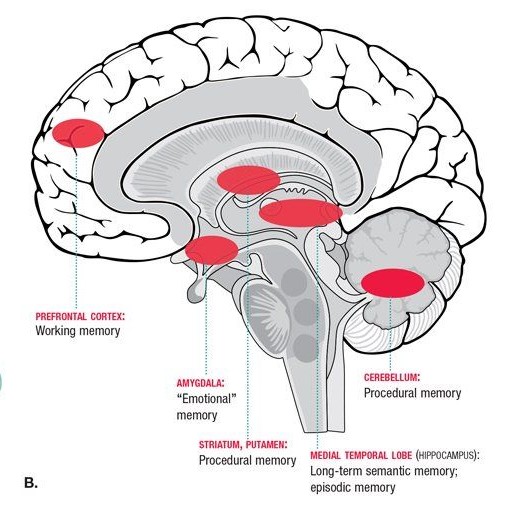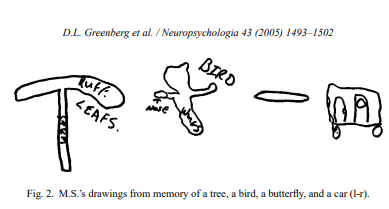BNA Annual General Meeting 2025
1st April 2025
9th Oct 2020
Recently published in the British Neuroscience Association (BNA) journal, Brain and Neuroscience Advances, here is an illuminating article by authors Alexander Easton, Jamie P. Cockcroft, Kamar E. Ameen-Ali, Madeline J. Eacott, evaluating 'Impaired episodic simulation in a patient with visual memory deficit amnesia'.

Visual memory deficit amnesia (VMDA) is a type of amnesia caused by impaired visual regions which store visual information. Consequently, seeing as the problem is more related to storing rather than encoding, VMDA resembles more retrograde amnesia (such as loss of memories pre-injury,) than anterograde amnesia (such as creating new memories post-injury).
Patients with amnesia have problems storing and retrieving memories and, to this date, most research focuses on damage to the hippocampus as the structure is involved in memory processes. However, for the first time, Alexander Easton and colleagues have studied a patient with VMDA where the hippocampus is intact, but the visual areas projecting into it are impaired.
In their research, Easton et al. compared a patient (MS), who suffered from object agnosia and amnesia, to controls, in an episodic stimulation task.
In the task, participants were presented with several scenarios and they were asked to imagine and describe their experiences. Easton and co-workers discovered that MS had difficulties in visu alizing episodic memories, especially when the task lacked visual information, for instance, imagining being in a cave.
alizing episodic memories, especially when the task lacked visual information, for instance, imagining being in a cave.
Hence, the paper focuses on explaining how patients with VMDA rely on recent visually improved memories to rebuild personal events, seeing as VMDA is caused by impaired visual centres which will not be able to project to the hippocampus to stimulate episodic moments.
Click here to read the full article
Brain and Neuroscience Advances is a peer-reviewed, open access journal, which publishes high quality translational and clinical articles from all neuroscience disciplines; including molecular, cellular, systems, behavioural and cognitive investigations.
The journal welcomes submissions in basic, translational and/or clinical neuroscience. Research papers should present novel, empirical results that are expected to be of interest to a broad spectrum of neuroscientists working in the laboratory, field or clinic.
Brain and Neuroscience Advances is now indexed in PubMed Central.
Never miss the latest BNA news and opportunities: sign up for our newsletter